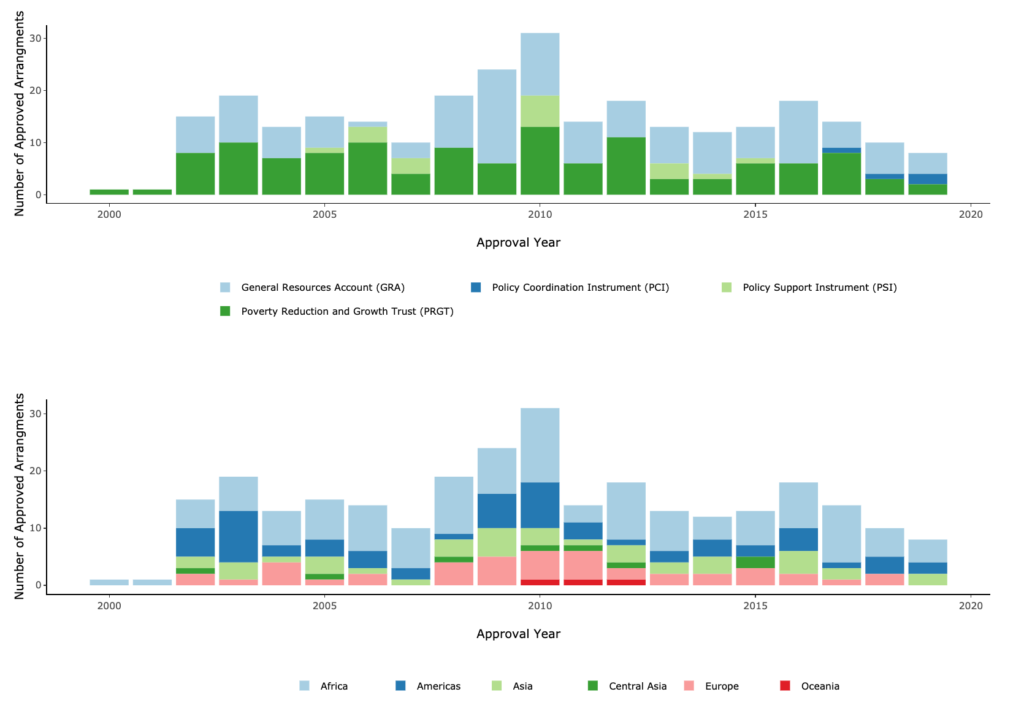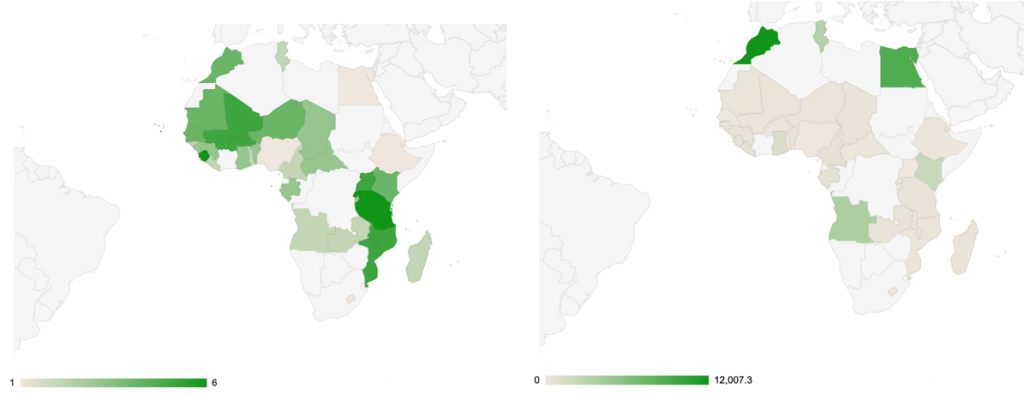Visualizing 20 years of IMF bailouts
Posted by Fatema Soliman
Updated: Oct 21, 2019

Established by the Bretton Woods Agreement in 1944, the International Monetary Fund seeks to ensure the stability of the international monetary system by promoting international monetary co-operation, international trade, high employment, exchange-rate stability, sustainable economic growth, and making resources available to member countries in financial difficulty.
The Monitoring of Fund Arrangements (MONA) Database provides comprehensive arrangement as well as country level data from 2002.

A choropleth map further highlights the gap between the number of loans and amounts of loans given to low and medium or high income countries. Sierra Leone has received six loans since 2002, making it the most frequent borrower in Africa. While Egypt, a first time borrower received a loan over 22 times larger in 2019.

The General Resources Account (GRA) is a type of loan available to all member states, whereas the Poverty Reduction and Growth Trust (PRGT) is only available to low income countries (LICs). PRGT loans were made up to the majority of approved loans for every year until 2008, when they were overtaken by GRA loans. Both the number of loans and total loaned amounts peaked two years later in 2010, as a result of the global financial crisis, with a total of 107 billion Special Drawing Rights (SDR), equivalent to $148 billion in loans approved that year, 97% of which was given to countries in Europe and South and Central America.

The primary criterion for success or failure of an IMF bailout is a country balance of payments. Countries often seek IMF aid when they experience large and deteriorating BoP deficits. With nine loans, Colombia holds the record for the most IMF bailouts since 2002 but it is often criticized as one of the IMF and the World Bank’s most obvious failures. Not only has the BoP failed to show significant improvement, but the IMF’s economic policies, which it places as conditions for disbursing tranches of a loan, have been blamed for rising unemployment and falling per capita income.
Fatema Soliman
Fatema is a Data Science Fellow with an MSci in Physics and experience in Ad Tech and Programmatic.
View all articlesTopics from this blog: Student Works